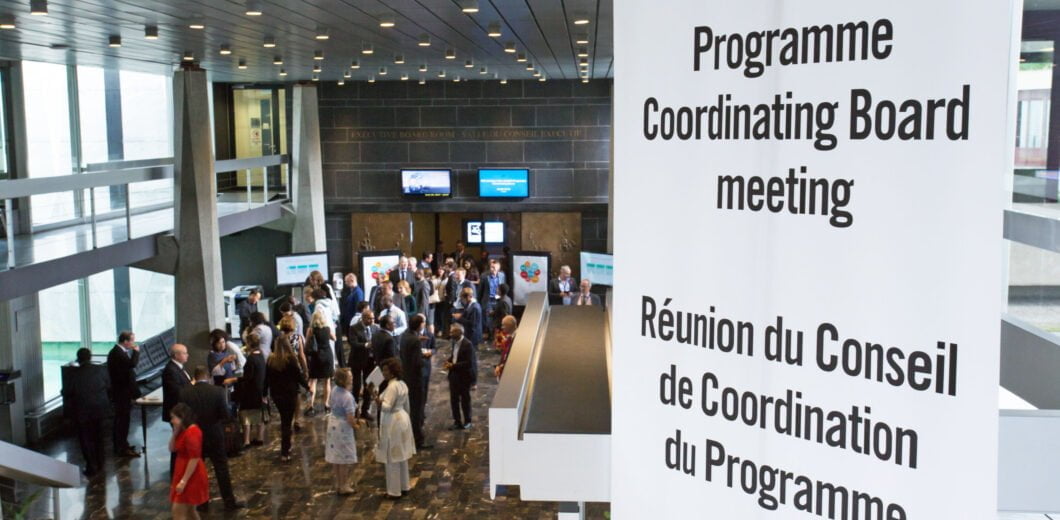The Programme Coordinating Board (PCB) is the governing body of the Joint United Nations Programme on HIV/AIDS (UNAIDS). Currently, the PCB has 38 members: 22 Member States from all geographic regions, 11 Cosponsors, and 5 Nongovernment Organizations (NGOs).
As the first UN organization to have seats reserved for NGOs on its governing board through ECOSOC resolution 1995/2, UNAIDS was clearly ahead of its time. It was also a recognition of the principle that the engagement of communities, particularly people living with HIV, in the HIV response was non-negotiable. However, as with the Cosponsors, the NGO Delegation does not have full voting rights on the PCB but is able to participate in deliberations and propose decision points for consideration.
Member States
22 UN Member States have a seat on the PCB. They serve a term of three years and are elected from among the Member States that are members of ECOSOC. The initial terms of members vary in order to achieve a staggering of membership. After the initial elections, approximately one-third of the membership is replaced annually. The seats of Member States on the PCB have the following regional distribution:
- Western European and Others Group – 7 seats
- Africa – 5 seats
- Asia and Pacific – 5 seats
- Latin America and the Caribbean- 3 seats
- Eastern European/Commonwealth of Independent States- 2 seats
Cosponsors
There are currently 11 Cosponsoring organizations that have a seat on the PCB. Together, these organizations form the Committee of Cosponsoring Organizations (CCO) that reports directly to the PCB. Each of the Cosponsors has full rights to participation in the PCB but without the right to vote (see the terms of reference of the CCO in Annex 1 of the Modus Operandi).
NGO Delegation
5 Nongovernmental Organizations (NGOs) have a seat on the PCB. According to the founding ECOSOC resolution (1995/2 refers), three of those seats are reserved for NGOs from developing countries and two from developed countries or countries with economies in transition. They participate in meetings of the PCB but without the right to take part in the formal decision-making process and without the right to vote. Representatives of these NGOs, together with five alternate non-governmental organizations, form the PCB NGO Delegation. You can read more about the NGO Delegation here.
